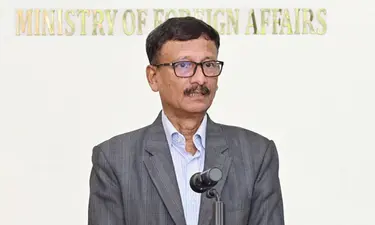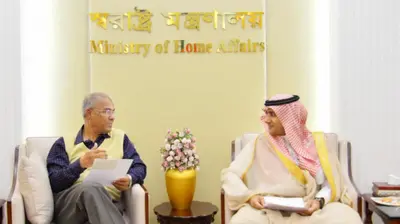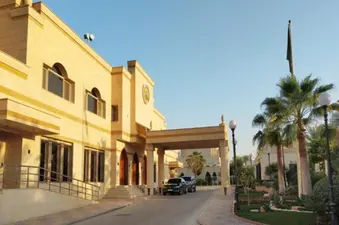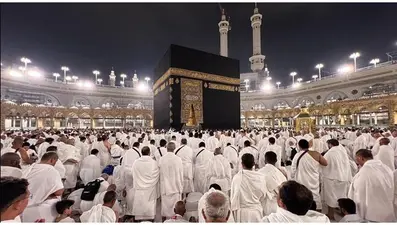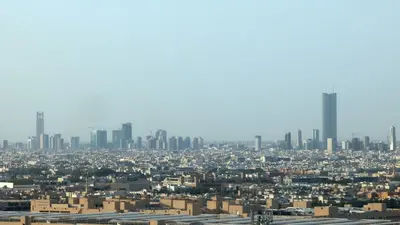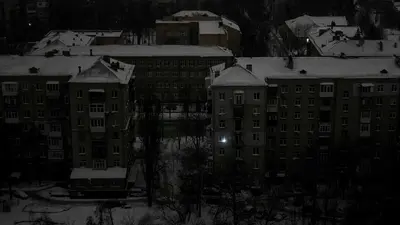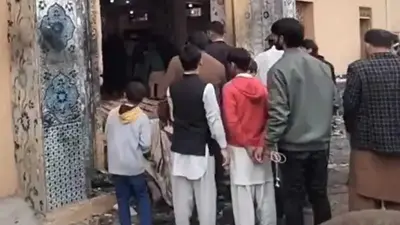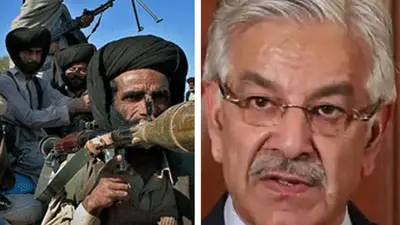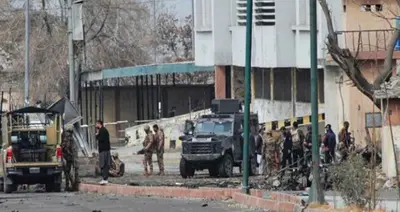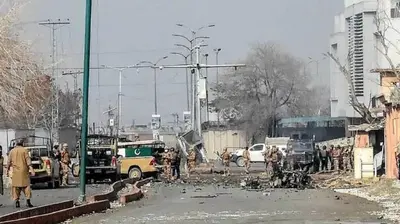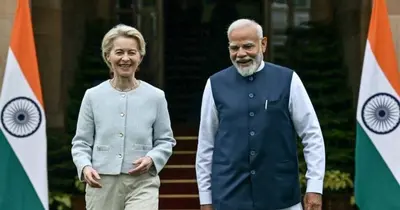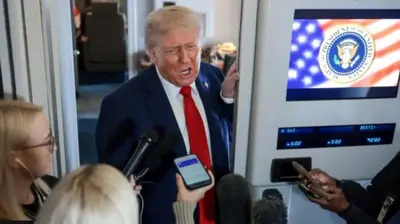Saudi-French Push at UN Puts Palestinian Statehood Back on Global Agenda
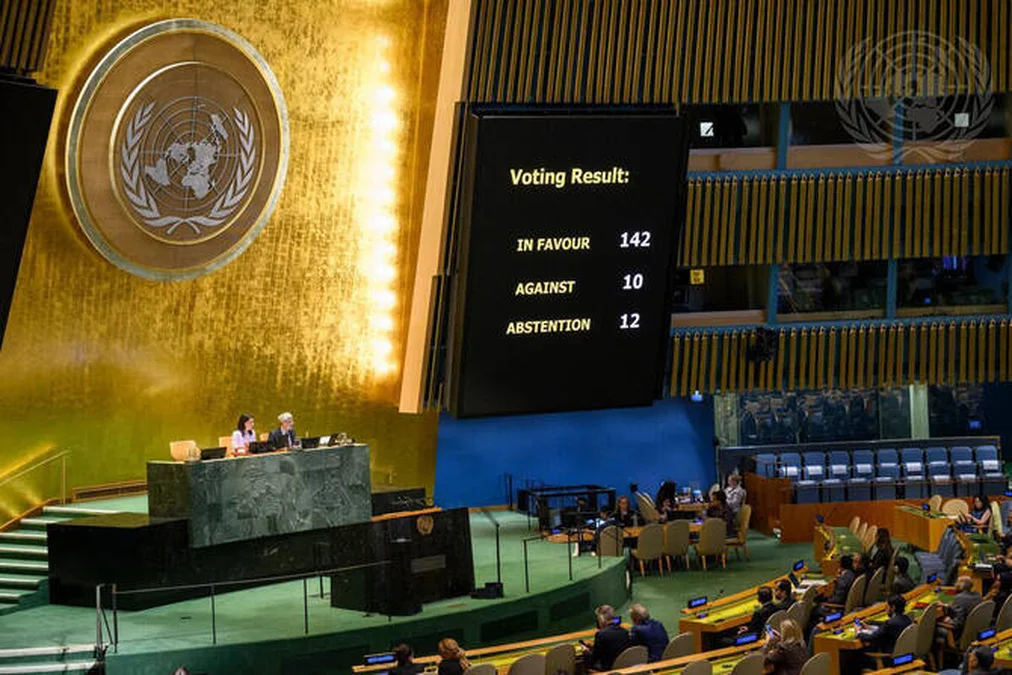
In a dramatic shift at the United Nations, an overwhelming majority of member states voted in favor of a Saudi-French declaration backing Palestinian statehood, signaling a renewed momentum for the two-state solution after years of diplomatic deadlock.
On Friday, 142 nations endorsed the “New York Declaration” at the UN General Assembly, marking a major diplomatic victory for Riyadh and Paris. The resolution, rooted in the Arab Peace Initiative and shaped by months of Saudi-French coordination, calls for a Gaza ceasefire, disarmament of Hamas, recognition of an independent Palestinian state, and the deployment of an international stabilization mission under UN mandate.
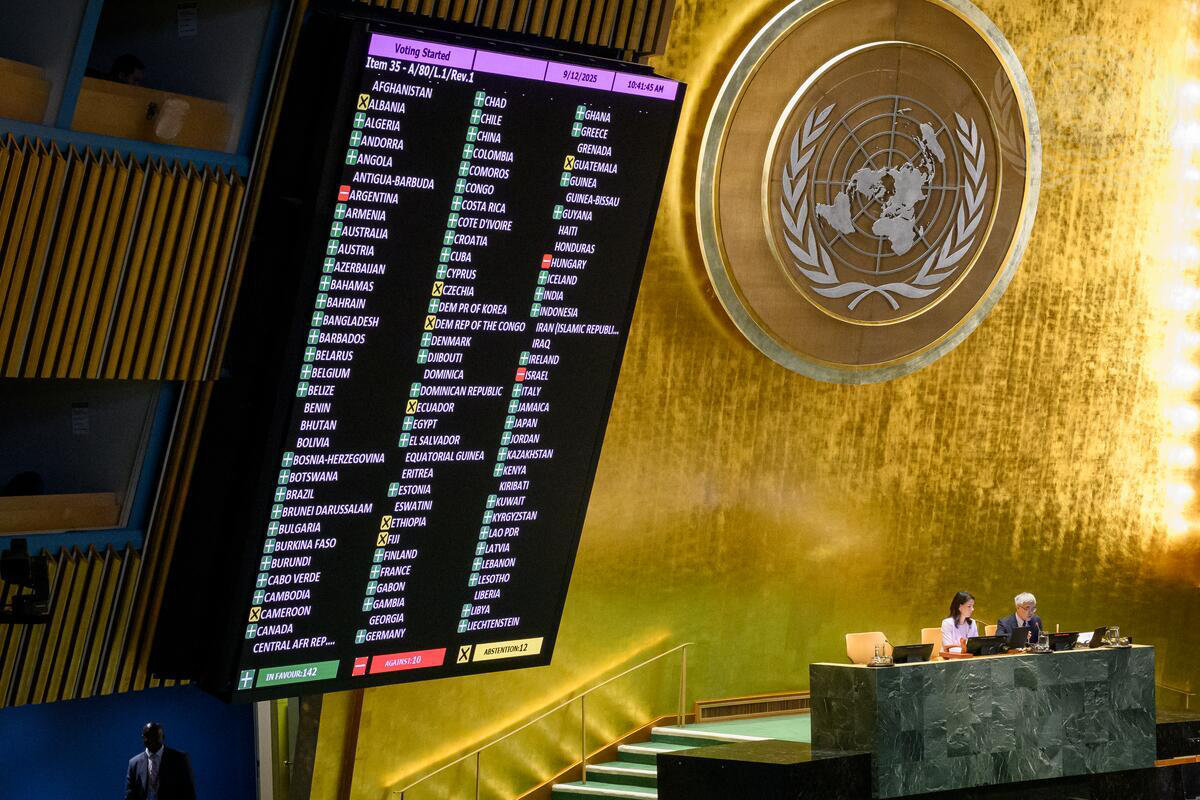
Only 10 countries, including Israel and the United States, opposed the resolution, while 12 abstained. The vote represents one of the strongest international endorsements of Palestinian statehood in recent decades and a strategic setback for Israel’s efforts to prevent its recognition.
Macron: “Another future is possible”
French President Emmanuel Macron hailed the vote as proof that the world is “charting an irreversible path towards peace in the Middle East.” Writing on X, he reaffirmed his government’s stance: “Two peoples, two states: Israel and Palestine, living side by side in peace and security.”
The Saudi Foreign Ministry echoed this sentiment, saying the declaration underscores a “global consensus” on Palestinians’ right to an independent state based on the 1967 borders, with East Jerusalem as its capital.
The declaration, drafted at a Saudi-French conference in New York in July, also linked statehood recognition with broader regional stabilization. It called for the release of hostages, normalization between Israel and Arab states, and the establishment of a temporary international mission to support civilians and security transition in Palestinian territories.
Mounting pressure on Israel
For Israel, the vote underscored growing diplomatic isolation. Israeli Foreign Ministry spokesman Oren Marmorstein denounced the declaration as “disgraceful” and dismissed the UN General Assembly as “a political circus detached from reality.”
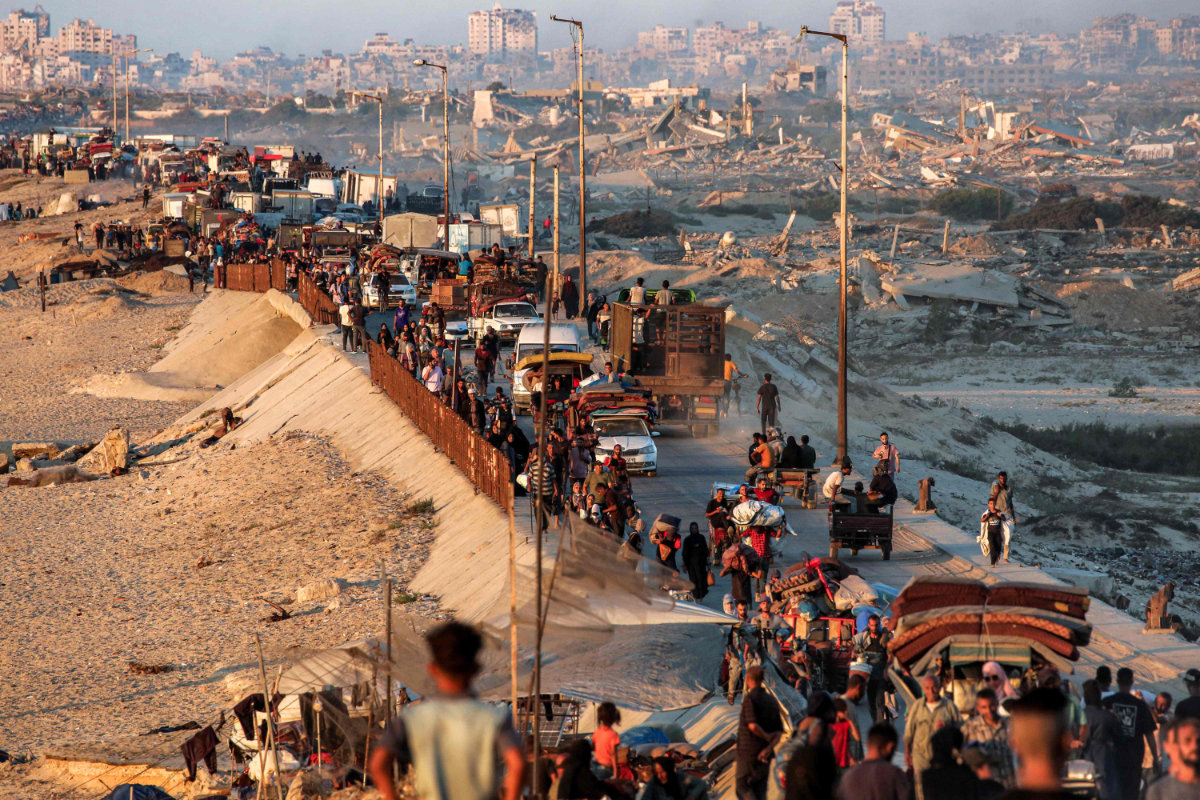
The US also rejected the measure. Morgan Ortagus, deputy special envoy to the Middle East, condemned the resolution as a “publicity stunt” that rewards Hamas while undermining serious negotiations. She emphasized that disarming Hamas and releasing hostages remain key prerequisites for peace.
Despite these objections, analysts say the overwhelming support reflects global frustration with Israel’s ongoing military campaign in Gaza, which has killed more than 64,000 people according to local health authorities, displaced millions, and fueled a humanitarian crisis.
Egyptian scholar Hani Nasira described the vote as “a strategic defeat for Israel and an embarrassment for its allies.” He warned that Prime Minister Benjamin Netanyahu’s intransigence, including his pledge last week that “there will be no Palestinian state,” risks destabilizing not only Palestine but the wider Gulf region.
European shift against Israel
The UN vote comes amid a significant change in European attitudes. Countries including Spain, Ireland, and The Netherlands have banned imports from Israeli settlements, while EU officials are weighing sanctions and partial suspension of trade agreements with Israel.
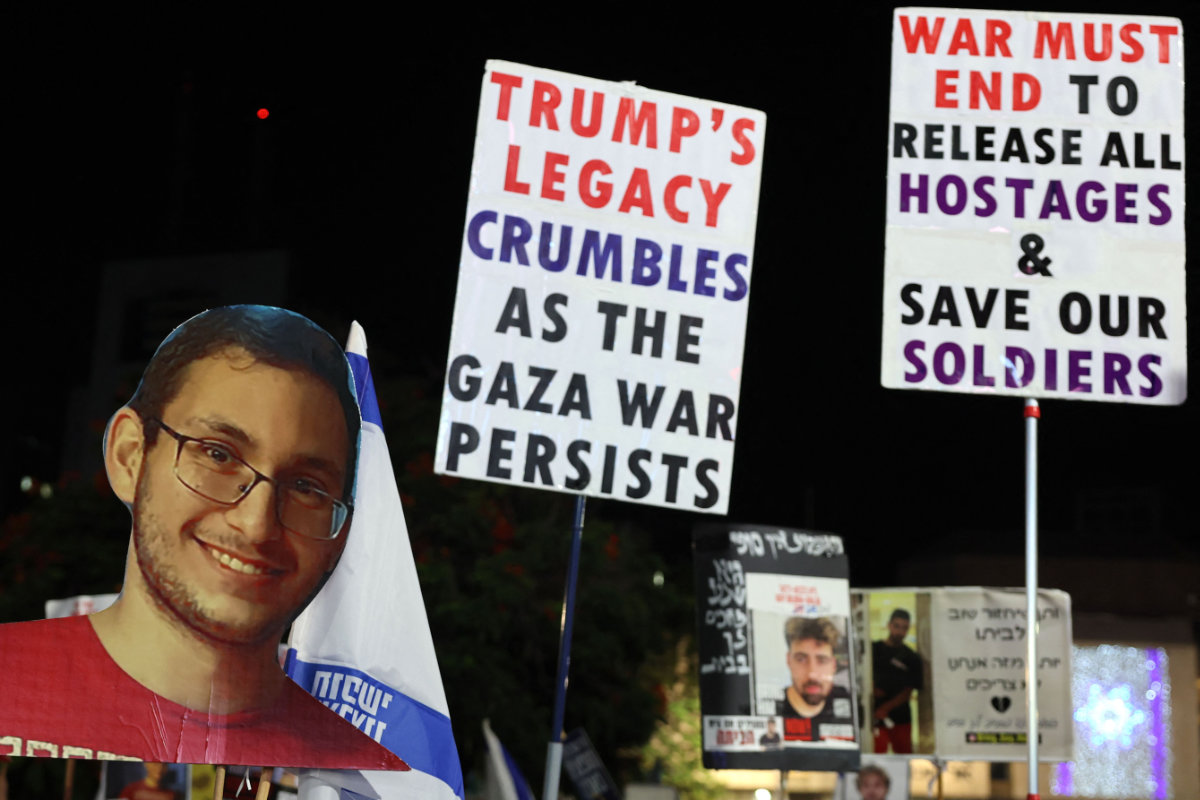
Several European states, among them Germany, Slovenia, and Spain, have imposed arms embargoes. Meanwhile, nations such as Canada, Belgium, and Australia have pledged to formally recognize Palestine during the upcoming UN conference on Sept. 22, co-chaired by Saudi Arabia and France.
These measures point to an increasingly coordinated effort to pressure Israel diplomatically, even as Netanyahu doubles down on settlement expansion and military operations in Gaza and the West Bank.
Saudi Arabia’s growing diplomatic clout
Friday’s outcome reflects the Kingdom’s rising influence in international diplomacy. Building on the Arab Peace Initiative of 2002, Riyadh has in recent years positioned itself as a central player in pushing for Palestinian rights.
%20and%20Saudi%20Crown%20Prince%20Mohammed%20bin%20Salman%20in%20Brussels.jpg)
Saudi Foreign Minister Prince Faisal bin Farhan has hosted multiple international conferences, launched the Global Alliance for the Implementation of the Two-State Solution with 90 member states, and mobilized humanitarian aid for Palestinians. Crown Prince Mohammed bin Salman has also ruled out normalization with Israel without Palestinian statehood, reinforcing Riyadh’s role as a gatekeeper for Arab-Israeli peace.
Speaking before the Saudi Shoura Council earlier this week, the Crown Prince said the New York conference “achieved unprecedented mobilization and reinforced global consensus” around the two-state solution. He condemned Israel’s “crimes of starvation and forced displacement” in Gaza while affirming support for Qatar after recent Israeli strikes in Doha.
Challenges ahead
Despite the diplomatic breakthrough, obstacles remain. Netanyahu’s far-right government continues to expand settlements and insists no Palestinian state will be recognized. Meanwhile, internal Palestinian divisions, particularly Hamas’ refusal to disarm without sovereignty, complicate negotiations.
%20and%20French%20foreign%20minister%2C%20Jean-Noel%20Barrot%2C%20chair%20a%20conference%20on%20Palestine%20and%20a%20two-state%20solution%20at%20the%20UN.jpg)
Analysts caution that without enforcement mechanisms, the UN resolution may not immediately alter realities on the ground. Still, they argue the vote represents a turning point, elevating Palestine’s diplomatic standing and exposing the limitations of US and Israeli influence in shaping global consensus.
“Israel’s violations in Gaza have accelerated the shift toward a multipolar order,” said Nasira. “The concern is no longer just for Palestine. The conflict now threatens Gulf security, regional stability, and Washington’s credibility as a reliable ally.”
Looking ahead
Attention now turns to the Sept. 22 UN conference on the two-state solution. With France, the UK, Canada, and other allies expected to join Saudi Arabia in formally recognizing Palestine, momentum toward statehood appears to be gathering pace.
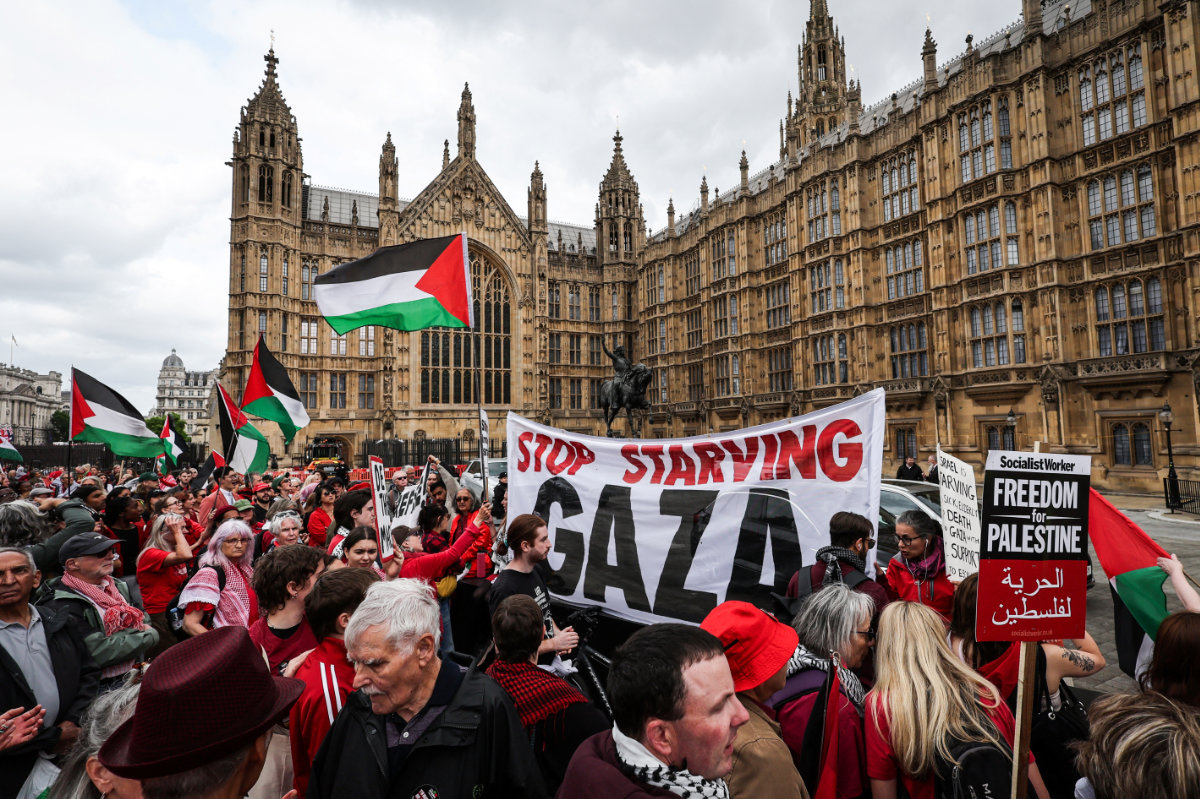
For Riyadh, the vote validates its long-standing position that peace and normalization in the Middle East are impossible without addressing Palestinian aspirations. For Palestinians, the overwhelming UN support represents a rare diplomatic victory at a time of immense suffering.
Whether this moment marks the start of a sustained path to statehood or remains symbolic will depend on the willingness of world powers to translate words into concrete actions.

